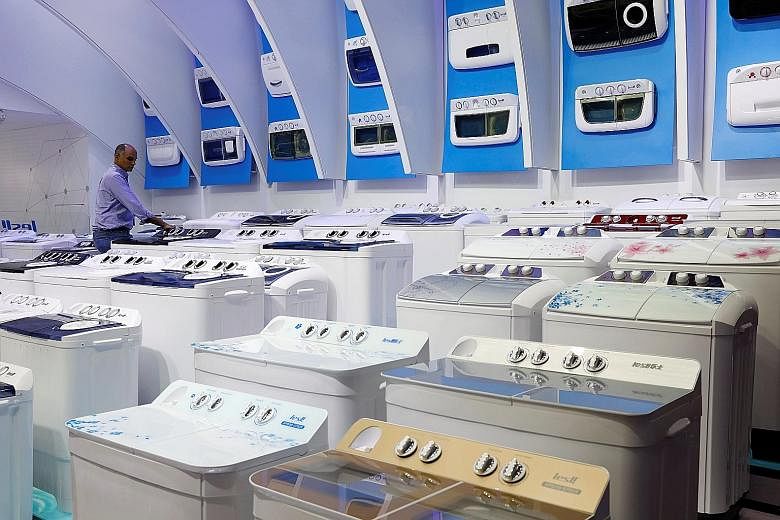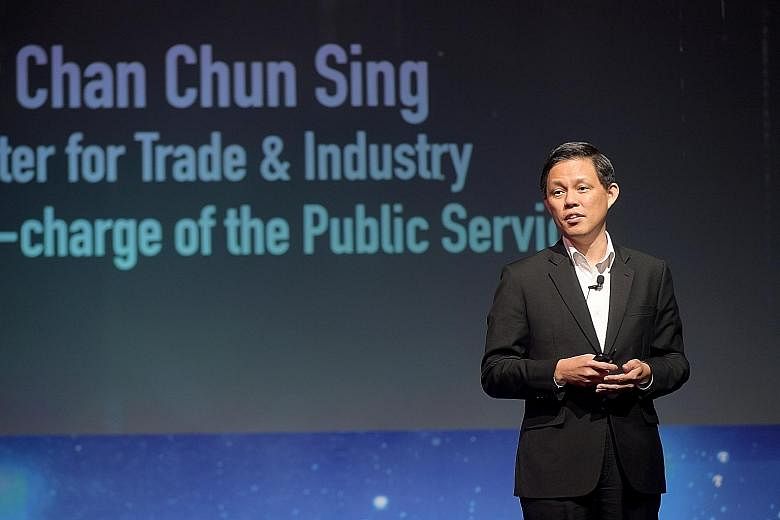The net effect on Singapore of the ongoing trade tensions and tit-for-tat tariffs between the United States and China is likely to be modest, based on the tariffs announced so far, Minister for Trade and Industry Chan Chun Sing said in Parlia-ment yesterday.
This verdict also assumes trade tensions between the two economic giants do not worsen.
Singapore's biggest worry is that the conflict escalates into a vicious circle of tit-for-tat measures among all major economies, he said.
If the conflict sparks a sharp and sustained plunge in business sentiment and consumer confidence, or a tightening of global liquidity, Singapore's open economy will suffer significantly, he added.
Bilateral trade between the giants contributes to 1.1 per cent of Singapore's gross domestic product.
The trade spat hit a new low last Friday when the US tariffs on US$34 billion (S$46 billion) worth of Chinese goods kicked in, and China responded with counter-tariffs on US$34 billion of US goods.
The moves followed several rounds of US tariffs on steel and aluminium imports, solar cells and washing machines, which applied to many economies including the European Union and even Singapore.
Mr Chan said: "The trade conflict between the US and China... will have global repercussions. Not only will it inhibit global trade and global growth, (but) there will also be disruptions to supply chains impacting businesses, jobs and consumers."
He laid out how Singapore will be affected, following questions from Nominated MP K. Thanaletchimi and Mr Henry Kwek (Nee Soon GRC).
Direct US tariffs affect a relatively small set of Singapore products - namely solar cells and modules, washing machines, steel and aluminium. These exports account for a "relatively modest" 0.1 per cent of Singapore's total domestic exports to the world, Mr Chan said.
The Government is working with affected companies to get their products exempted from the tariffs and to see where else they can export them to, he added.
The tariffs also have an indirect impact on Singapore as companies here may sell parts used in China's exports to the US.
But these companies may be able to mitigate the impact by exporting their goods to other markets.
Chinese traders may also buy more from the Asean region because US imports hit by Chinese tariffs will become less competitive.
Mr Chan noted that Singapore has developed strong trading networks and diversified sectors over the years, which "will enable companies here to navigate the disruptions and seek out new opportunities and alternative suppliers and demand markets".
Meanwhile, it will continue to work with all like-minded partners to uphold a rules-based, multilateral trading system and work towards greater regional integration, he said.



